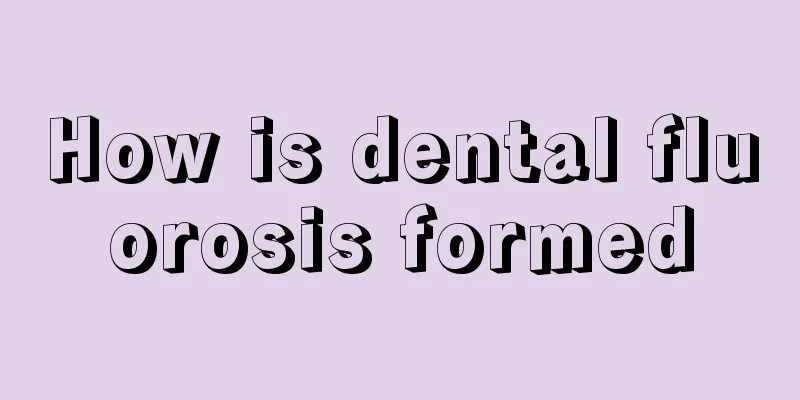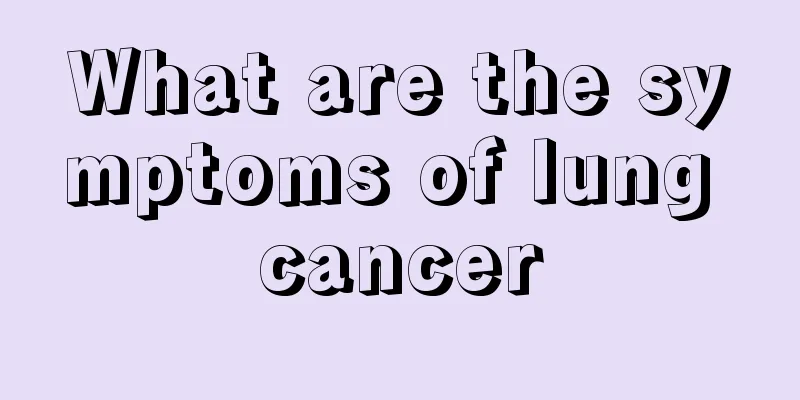What is the thyroid gland

|
The thyroid gland is a physiological part that everyone has. For those who don’t know much about the thyroid gland, they may not know what the thyroid gland is. The thyroid gland is the largest endocrine organ in the human body. The thyroid gland of a normal adult is located in the front and lower part of the trachea in the human neck. The thyroid gland is "H" shaped and is divided into two lateral lobes, each of which is shaped like a cone with the tip pointing upward. A normal thyroid gland is soft and cannot be felt. It is approximately 2.5 to 4.0 cm long, 1.5 to 2.0 cm wide, and 1.0 to 1.5 cm thick. The size and weight of the thyroid gland increases with age. What is thyroid disease? 1. Symptoms of hyperthyroidism include bulging eyes, thickened neck, diarrhea, insomnia, emotional agitation, irritability, weight loss, and increased appetite. The main symptom is eating a lot but losing weight. Once this happens, you need to seek medical attention in time to ensure early detection and treatment. 2. Symptoms of hypothyroidism include drowsiness, apathy, slow movements, memory loss, slow speech, slow reaction, inactive thinking, depression, anxiety, lack of energy, fatigue, weight gain, pale skin, etc. Once these symptoms appear, you need to seek medical attention promptly. Do not delay the treatment, as it will be more difficult to treat. 3. Thyroiditis is an inflammation of the thyroid gland, which includes acute thyroiditis, chronic thyroiditis and subacute thyroiditis. Thyroiditis generally leads to hyperthyroidism, hypothyroidism or thyroid nodules. The symptoms will appear like those of the other three thyroid diseases, so I will not go into details here. 4. Thyroid nodules refer to the appearance of thyroid nodules inside the thyroid gland. Generally, they can be diagnosed through B-ultrasound examination. Thyroid nodules need to be treated as soon as possible to avoid the increase of nodules, difficulty in treatment, and even the risk of cancer. Causes of thyroid As our living conditions improve, people have more and more diseases. We know that some foods contain goitrogenic substances, such as cruciferous plants, radish, cabbage, rapeseed, cabbage, rue, cassava, sweet potato, soybean, etc. These foods are substances that inhibit the synthesis of thyroid gland, which will inhibit the intestinal reabsorption of thyroid hormone excreted through bile, causing excessive thyroid hormone to be excreted from the intestine. Insufficient iodine intake. Some people have the habit of being picky about their diet, which may lead to insufficient intake of iodine, making them more susceptible to diseases such as thyroid cysts. Therefore, you should not be picky about food and eat a little bit of everything so that you will not lack various nutrients. Trace element deficiency causes thyroid enlargement. In addition to iodine deficiency which can induce goiter, when the soil, well water, and river water contain more calcium, zinc, fluorine, organic sulfur and other complexes, it can induce goiter or have stronger anti-thyroid activity. The water sources in some places are polluted by foreign substances, which can also induce thyroid cysts. |
>>: How to best preserve walnuts
Recommend
Ovarian cancer patients should pay attention to their symptoms
At present, many people are not aware of the symp...
What are the symptoms of early lung cancer? 4 common symptoms of early lung cancer
Daily diet is very important for preventing lung ...
The efficacy and function of pearl powder, nourishing the skin and keeping youthful
Simply applying pearl powder externally will not ...
Why is it so hard to defecate
Difficulties in defecation are often caused by pe...
What are the causes of sigmoiditis?
The sigmoid colon is a section of the colon locat...
The neglected little common sense in life can save lives at critical moments
5 common senses of first aid in life. Because peo...
How to use soft skin scrub
For girls, having smooth and white skin is partic...
How to repair sunburn and redness on the face
The sun is particularly strong in the summer, and...
What should you pay attention to in your diet for Candida
Generally speaking, most diseases require dietary...
How to remove yellow stains from clothes
If clothes are stained with stains of other color...
What pillow is good for cervical spondylosis
When it comes to cervical spondylosis, I believe ...
How should we prevent cervical cancer
Cervical cancer is one of the common malignant tu...
What to do if acid-base imbalance occurs
If the body's acidity and alkali are in a bal...
What should I do if my heels get blisters from shoes?
People often say that a pair of suitable shoes ca...
What are the early symptoms of colon cancer?
The colon starts from the cecum and ends at the r...









